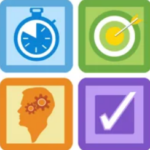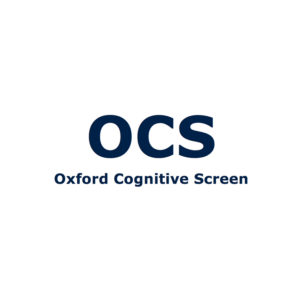Advances in digital, mobile and wearable technology offer simple, user friendly ways of supporting clients’ cognitive functions and mental health. Our choice of IT solutions to support and enhance clinical practice include:
Advances in digital, mobile and wearable technology offer simple, user friendly ways of supporting clients’ cognitive functions and mental health. Our choice of IT solutions to support and enhance clinical practice include:
Melo improves the understanding of challenging behaviour across various patient groups (neuro rehab, dementia, PTSD).
Simplified patient assessments, together with graphs & smart analytics, support clinicians in making improved evidence-based care decisions and ultimately, better manage the impact of escalating behaviour patterns and reduce incidents.
Neumind.co.uk offers neurofeedback services to enhance mental well-being and cognitive performance. Through personalized training programs, they aim to optimize brain function, reduce stress, and improve focus and emotional regulation.
A great VR tool with early stage scientific evaluation suggesting positive effects in promoting mindfulness, especially for people who struggle with traditional mindfulness meditation and those with shorter attention spans.
The Virginia Assistive Technology System (VATS) is a statewide program authorized and funded by the Assistive Technology Act of 2004, as amended and administered by the Virginia Department for Aging and Rehabilitative Services (DARS).
VATS was established in 1990 with commitment to increasing awareness, accessibility and acquisition of assistive technology. The program is guided by an Advisory Council composed of individuals with disabilities, family members and representatives from Virginia’s disability service agencies.
CBIT-In-Hand App is the first ever digital health intervention for families affected by ABI. It provides immediate tailored information and support in hand through your mobile device. It will reach more parents, carers and professionals. Provide access to information when it’s needed. Give access to virtual support for children and families affected by concussion and ABI.
The app has a vast range of information resources available. Often parents don’t know what they need. CBIT in Hand serves as an adaptable information portal providing information at every stage of a family’s journey.
https://childbraininjurytrust.org.uk/how-we-help/cbit-in-hand/

FOUR APPS IN ONE: PaceMyDay, ReachMyGoals, StrategizeMyLife, CompleteMyToDos. Ongoing development and testing with the assistance of individuals living with brain injuries, stroke, PTSD, and others with cognitive challenges. Developers claim that with consistent use, the BEST Suite will help you:
https://apps.apple.com/us/app/best-suite-4-apps-in-1/id1254448842
Goal Manager is a software application designed to take the gold-standard goal setting processes and streamline them into one system, allowing for time efficient, cost effective and meaningful goal setting within teams.
Goal Manager has the capacity to be a comprehensive database of all aspects of rehabilitation, including change in functioning over time, goal achievement and multi-disciplinary activity. The use of this function is free of charge for research institutions looking to develop the evidence base of rehabilitation healthcare.
Slow Down COVID-19 Stress
We know that the world is facing a major threat. For all of us life is changing. There is uncertainty about how long the situation will last and what will happen.
There’s lots of helpful information about managing stress. This website gives easy access to some of the main messages.
It shares ideas from a therapy called SlowMo. SlowMo supports people to Slow down for a Moment, see the bigger picture, and find the best way forward.
HappyNeuron Pro is a digital therapy tool that clinicians can use to provide engaging cognitive therapy for their patients. Cognitive therapy exercises engage and train various brain regions necessary for everyday functioning.
HappyNeuron Pro allows clinicians to customize and assign exercises for their patients to complete on their own. This gives the opportunity for patients to engage in their therapy between sessions or completely remotely.
Results are provided immediately after exercises are completed. This means no scoring needs to be done by you. You can view and print performance results daily or over months to have a thorough summary of your patient’s progress right at your fingertips!
Inspired by a rich history of studies involving robots and individuals with ASD as well as evidence-based therapies (ABA, Early Start Denver Model), LECA solution was developed hand-in-hand with therapists & researchers.
The Addenbrooke’s Cognitive Examination (ACE) is one of the most popular and commonly used cognitive tests used in dementia clinics and in the assessment of other neurological disorders.
ACEmobile is the latest version of the ACE (the ACE-3) with all of the advantages that computerisation offers.
Winner: Using Technology to Improve Efficiency | HSJ Awards 2018.
NHS specialists have tested thousands of health apps, selecting the best, to help your recovery following a Stroke or Brain Injury.
These apps have been found to aid rehabilitation for survivors, their families and clinicians following a Stroke or Brain Injury. Tried and tested by people like you.
https://www.my-therappy.co.uk/medical-condition/stroke-brain-injury
Brain in Hand is an on-demand support system that gives people access to detailed personalised support from their smartphone, putting the individual more in control of their own support. Always available, it gives easy access to reminders, notes, coping strategies and a team of trained professionals to give help when and where it’s needed.
It’s helping almost two thousand people across the UK to reduce anxiety and improve independence, reducing demand on carers and support services.
For use by Individual – Self-pay or grant-funded; For Schools, Colleges and Universities; For Local Authorities, NHS, Providers and Employers.
A blog curated by Dr Andrew Bateman with an emphasis on assistive technology in neuro-rehabilitation.
https://www.scoop.it/t/assistive-technology-by-andrew-bateman
A blog curated by Dr Giulia Bellesi and offering a review of available smartphone apps which have potential benefits in supporting people with neuropsychological difficulties. Featured in The Neuropsychologist, Issue 6 – October 2018, The British Psychological Society, Division of Neuropsychology publication.
CogSMART stands for Cognitive Symptom Management and Rehabilitation Therapy, a form of cognitive training to help people improve their skills in prospective memory (remembering to do things), attention, learning/memory, and executive functioning (problem-solving, planning, organization, and cognitive flexibility).
The CogSMART approach to cognitive training has been successful for people with psychiatric symptoms, brain injuries, and other brain-related conditions resulting in cognitive challenges. CogSMART uses compensatory cognitive training, rather than extensive drills and practice. In other words, people are taught how to improve their cognitive skills by using strategies, have them practice their strategy use in the real world, and then troubleshoot any difficulties that come up. Developer’s goal is to help make these strategies become habits, so they can be used automatically when they are needed in the real world.
JMIR Mental Health, Vol 5, No 4 (2018): Oct-Dec. Interaction and Engagement with an Anxiety Management App: Analysis Using Large-Scale Behavioral Data. Matthews, Topham, Caleb-Solly.
https://mental.jmir.org/2018/4/e58/
SAM (Self-help for Anxiety Management) is a mobile phone app that provides self-help for anxiety management.
Results of the study: Anxiety levels among all monitoring users were markedly reduced in the first few days of usage with some bounce back effect thereafter. A small group of users demonstrated long-term anxiety reduction (using a robust measure), typically monitored for 12-110 days, with 10-30 discrete updates and showed low levels of social participation.
Free SAM app download at:
MindMate offers the first all-in-one solution. It stimulates brain activity, offers advice on correct nutrition & physical exercises and makes it easy to stay connected with your social environment. Furthermore, they provide users with a wide range of engagement tools, including a jukebox feature and a television section. These tools are designed to engage people living with dementia and equip carers with convenient tools to deliver real person-centred care.
Read-Clear is a tablet App designed to assist reading in people with posterior cortical atrophy (PCA) and other degenerative conditions that impair vision. The App aims to alleviate the effects of the following:
Visual disorientation (e.g. getting lost in the page); Visual crowding (e.g. words cluttering up); Oculomotor apraxia (e.g. difficulty following text along a line)
Read-Clear was developed in a collaborative effort between scientists at University College London (UCL) and people living with PCA and their relatives and was funded by The Dunhill Medical Trust.
https://play.google.com/store/apps/details?id=uk.ac.ucl.pcareader

The Oxford Cognitive Screen (OCS) was developed as a brief stroke-specific cognitive screen, aimed to be used in time- and resource-pressured acute clinical settings. The OCS provides a meaningful ‘cognitive profile’ for a patient covering 5 core cognitive domains (attention, language, memory, number and praxis).
Finally, the OCS has been adapted for tablet-based administration. OCS-BRIDGE was funded by the Wellcome Trust and Department of Health and includes a scripted OCS administration and automatic reporting as well as tests by the Cambridge team.
OCS-BRIDGE has been developed from years of research at the University of Oxford and the Medical Research Council Cognition and Brain Sciences Unit in Cambridge. It fills a gap between very brief screening tasks, typically developed to detect dementia, and very long, comprehensive neuropsychological assessments, which require a range of different tests, can take hours to complete and must be conducted by a trained clinical neuropsychologist.
This forum provides links to research, apps and other technological solutions clinicians and clients may find useful. Please email and let us know about any tech innovations you are aware of that we can add to this database here [email protected]
0207 164 6821
Harlow, Blackheath, Wimbledon, Haywards Heath, Hemel Hempstead, Mildenhall and surroundings area.
Company Name: Npsych Limited. Company Number: 07119496, Place of Registration: England and Wales. Registered Office: 7 Ducketts Mead, Roydon, Essex, CM19 5EG
Copyright All Rights Reserved © 2024 │ Privacy Policy │ Disclaimer │ NPsych Limited │ Designed by The Look Blog Agency